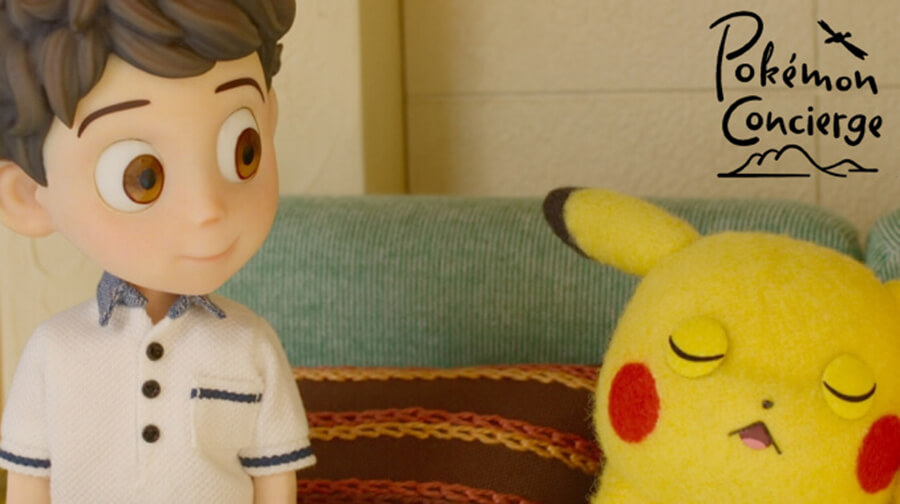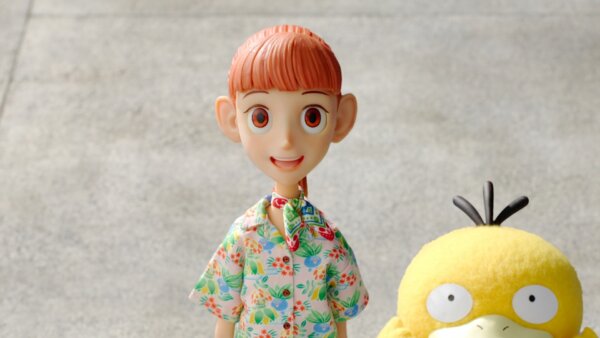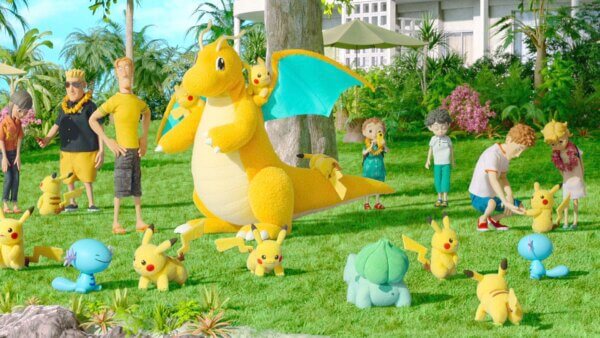‘Pokémon Concierge’ Renders the Franchise in Stop-Motion for First Time | Review

© Netflix
Despite being arguably the world’s highest-grossing media franchise of all time, Pokémon still has room to grow. Game Freak’s money machine still churns out product at an alarming rate, but the franchise’s cultural cachet feels less attainable next to other Nintendo juggernauts like Mario or Zelda. Those story worlds have become beloved fixtures of fiction, while Pokémon is more widely known for its core concept – training creatures to fight and level up – and gameplay. It’s not necessarily about the pocket monsters themselves, rather how many cards you can collect. This is why the series doesn’t have a number of recognizable characters outside of Ash, Pikachu, and a handful of Generation I Pokémon, yet an app like Pokémon GO can become a worldwide phenomenon within a week.
Fans of the franchise know that Pokémon’s unique ecosystem contains vast possibilities for strong storytelling, yet much of it feels untapped (even with a long-running anime of over 1,000 episodes). This is what makes Pokémon Concierge, now streaming on Netflix, feel like such a welcome breath of fresh air. Animation company dwarf studios strips away much of the traditional Pokémon formula and, by doing so, shows us what this series is capable of when given a stronger focus on theme and character. In Concierge, there’s no battling, no gyms to take down, not even a hairbrained scientist or some larger mythological deity. Set on a remote tropical island, this new series puts friendship and personal development at the forefront, making for a warmer, more personal Pokémon experience.
The series follows Haru (voiced by popular Japanese actress Rena Nōnen, professionally known as Non, in the original dub), a young woman who, after experiencing a prolonged stint of bad luck, is looking for a fresh start. This comes in the form of a new job as concierge at Pokémon Resort, an island hotel that services both human beings and pocket monsters as its guests. Initially, Haru struggles to fully give into the resort’s getaway charms, stuck in her workaholic, wired-in ways. When asked to describe her experiences to resort manager Watanabe (Yoshiko Takemura), her first instinct is to prepare a digital presentation of charts and graphs. It quickly becomes clear that, in order for Haru to get the most out of her experience, she is going to need to disconnect in order to properly reconnect.
For a series that is so often experienced through LED screens, it’s surprising to watch a Pokémon series so interested in the merits of unplugging. Haru even struggles to get basic cell reception (no Pokémon GO for her). She is forced to look within herself and discover her own abilities outside of a society that values productivity, a subtle but notable framework that makes a short and sweet show especially relevant to its target audience. Instead of getting lost in hustle culture, Haru learns to embrace her imperfections, discovers a love for crafts, and befriends her fellow resort staff. She even puts in the work to befriend a shy but caring Psyduck. In the show’s final episode, Haru even helps a young trainer, Mao, crack open his own Pikachu’s nervous shell. The writing isn’t Shakespeare, but it’s clear that this is a series with its heart and its mind in the right place.
The series’ novel storytelling is especially elevated by its presentation, which renders the franchise in stop-motion animation for the first time. Utilizing plasticine puppetry alongside other unique textures, dwarf studios’ work here is so stupefyingly perfect that we never want to see the world of Pokémon brought to life in any other way. There’s an ineffable warmth and joy exuding from the series from minute one, so dazzling that you’ll want to book your own stay pronto. The resort’s lush green foliage and saturated blue sky burst with colour and detail, while character models feel limber and comedically expressive. There’s a great attention to detail on the Pokémon especially, each captured in a perfect one-to-one from their appearances in the games but given new life thanks to carefully implemented texturing. It’s easy to forget that Pikachu and Psyduck have fur, but you’ll never forget it after seeing it brought to life with actual wool. dwarf studios even went to the effort of scaling each creature properly, helping the series fit comfortably within the logical confines of its own absurd universe.
Fans will want to pause every frame in order to breathe in the series’ incredible animation (not to mention spot every Pokémon the creators chose to include) and they ought to. After all, their time spent at Pokémon Resort is short-lived. The choice to only produce four episodes, collectively less than an hour of material, is a fishy one, potentially attributed to the show’s labour-intensive production or a lack of substantial budgeting. Whatever it is, it does seep into the final product, which lacks the greater depth and immersion inherent in longer episodic narratives. With more time to prosper, Pokémon Concierge could usher in a brilliant new era of stories told within the Pokémon universe. As of now, it is as much of a short-lived getaway as the resort itself. This should not disway anyone from enjoying the series, however, as its impeccable animation and character-focused story make it one of Netflix’s more memorable original projects and certainly a must-see for Pokémon fans everywhere.
All four episodes of Pokémon Concierge are now streaming on Netflix.




